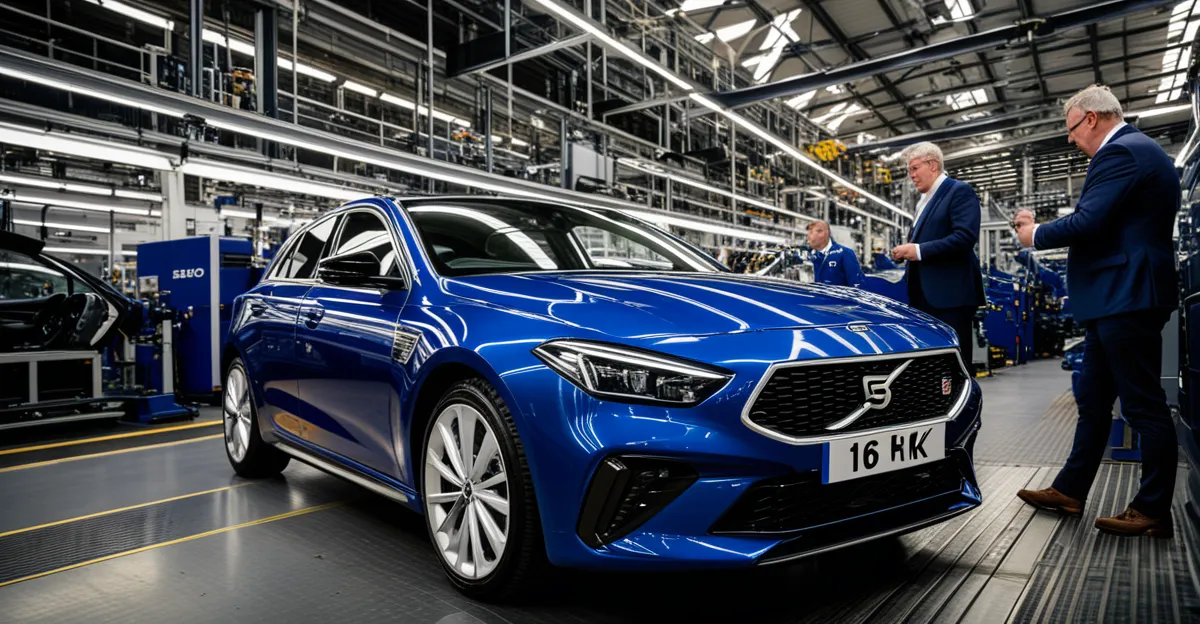Immediate Impacts of Brexit on UK Car Manufacturing
Since Brexit, the UK car industry has confronted notable disruptions in production volumes and factory operations. Several post-Brexit changes have directly influenced the daily functioning of key car manufacturing sites. For instance, major automakers like Jaguar Land Rover, Nissan, and Mini reported initial economic effects including slowed production lines and hesitancy in procurement decisions. These companies faced challenges adapting to new customs procedures and regulatory shifts that have tightened operational timelines.
Car manufacturing statistics post-Brexit reveal a decline in output during transitional periods, primarily due to increased border controls and delays in importing essential components. These bottlenecks have resulted in periodic halts and reduced efficiency within factories. Additionally, fluctuating exchange rates and uncertainty around long-term trade relations further complicated investment and planning for the sector.
In parallel : What are the environmental initiatives taken by UK automakers?
The cumulative impact has been a tangible slowdown in UK car manufacturing growth, affecting jobs and regional economies tied to automotive hubs. However, manufacturers have begun to adjust their operational strategies to manage these challenges, signaling an ongoing adaptation phase in response to the immediate effects of Brexit on the UK’s automotive landscape.
Changes to UK Car Exports and Imports
Since Brexit, the UK car industry has experienced significant shifts in car exports and imports, particularly regarding trade with the EU. Export volumes of vehicles to EU countries have declined, reflecting new non-tariff barriers such as customs checks and regulatory divergence. These obstacles have increased administrative burdens and delayed shipments, impacting delivery schedules and customer satisfaction.
Also to read : How Can UK Automotive Industry Navigate Future Challenges?
Additionally, new tariffs imposed under WTO rules apply unless covered by trade agreements, raising costs for manufacturers and consumers. While some trade deals have aimed to preserve tariff-free movement, the reintroduction of customs procedures means delays at borders are unavoidable. For example, manufacturers like Nissan and Mini report that these disruptions have tightened supply chains and complicated inventory management.
Imports of car parts and components from Europe have also become more expensive and slower due to extra paperwork and border inspections. Our analysis of recent EU-UK trade data confirms a contraction in automotive goods transported across borders, impacting production lines and export flexibility.
Ultimately, the combination of fluctuating trade policies, tariffs, and post-Brexit changes has transformed the international automotive markets. Car exports and imports are adapting, but challenges persist as manufacturers adjust logistics and negotiate new supplier relationships.
Supply Chain Disruptions and Adaptations
Since Brexit, automotive supply chains have faced significant upheavals, chiefly due to prolonged customs checks and border delays. These Brexit bottlenecks have directly affected the timely delivery of essential parts, causing assembly lines in the UK car industry to stall intermittently. Manufacturers report that delays in importing raw materials and key components have increased operational costs and forced revisions to production schedules.
The complexity rises as many suppliers remain within the EU, meaning that each cross-border shipment encounters additional paperwork and inspections. This has intensified logistical challenges, requiring more meticulous planning and buffer stocks to avoid production halts.
In response, car makers like Jaguar Land Rover and Nissan have adapted their supply chains by diversifying sourcing strategies, increasing stock levels, or shifting certain procurement closer to the UK. These adaptations aim to reduce reliance on just-in-time deliveries that become vulnerable under new border procedures.
Despite these efforts, logistical challenges persist, impacting efficiency and cost-effectiveness. Understanding these supply chain pressures is essential to grasp the full nature of the post-Brexit changes in UK car manufacturing and the industry’s ongoing adjustments to maintain competitiveness.












